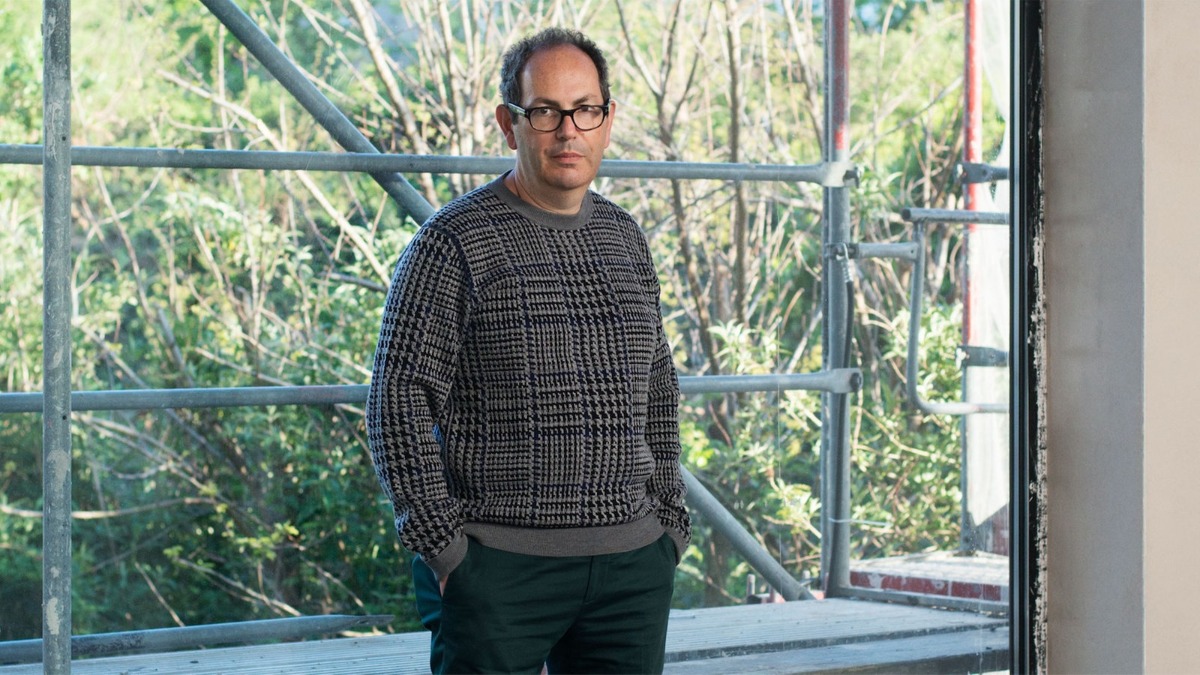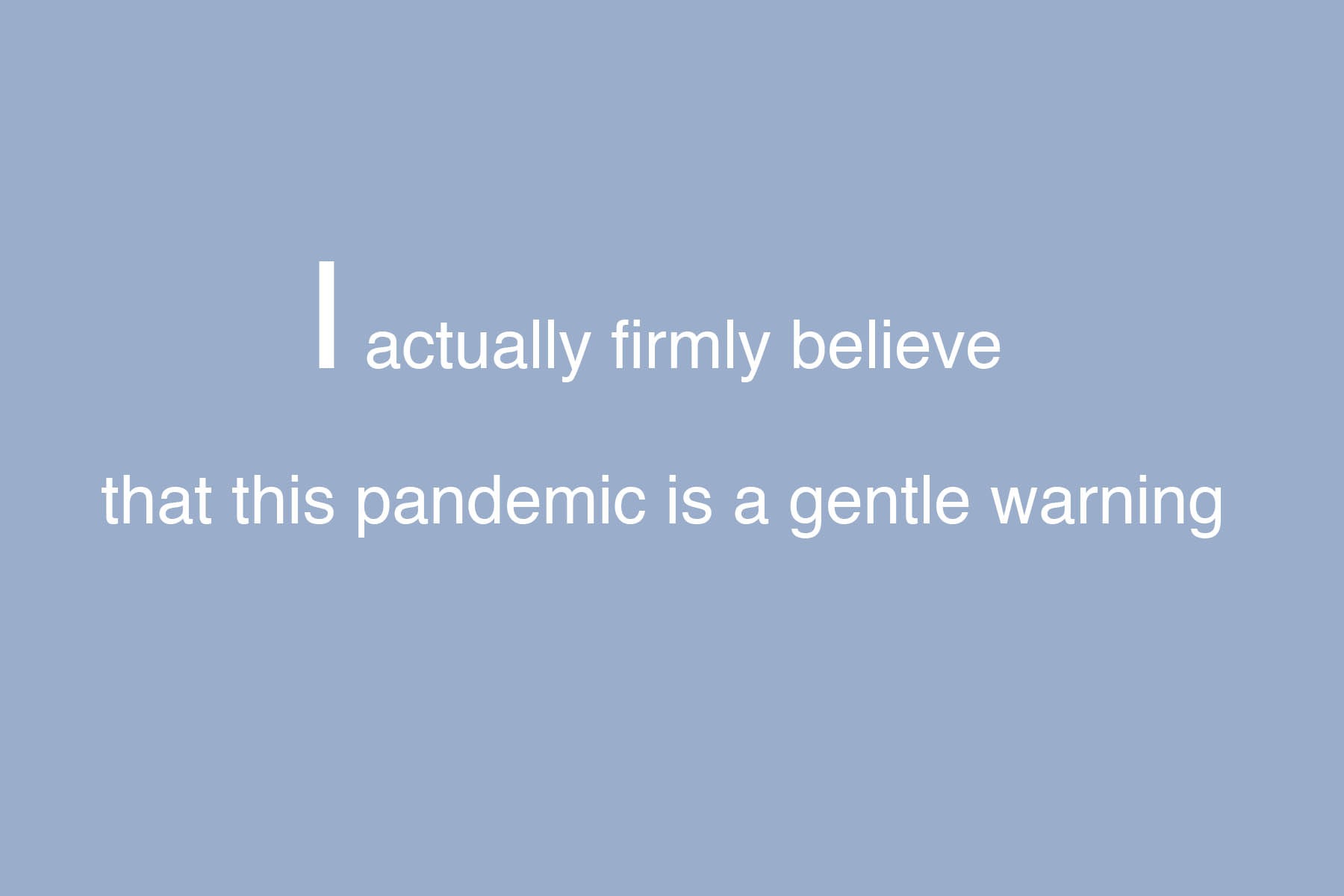
This pandemic is a gentle warning
Do we learn from crisis?
The opinion of Gil Bronner, the Düsseldorf-based art collector, the founder of the Philara art space
Although the peak of the COVID-19 crisis is perhaps still to come for most of us, it is clear that the pandemic will end someday and that humanity will survive, yet it is equally clear that the world will have changed inexorably. What it might look like, how will our value systems have changed as well as our attitude towards things, other people, and art – are questions that Arterritory.com has posed over these last days to many people intrinsically involved in the art world. In the following express-interview, Gil Bronner, the Düsseldorf-based art collector and the founder of the Philara art space shares his opinions.
How do you feel in this new reality which is neither a book nor a sci-fi film, and is happening to all of us in the here and now?
I live in Düsseldorf, a city where the shutdown is not total, so everything feels mildly subdued – like walking down a street after it has snowed all evening. Also, of course, I am not particularly good at sticking to rules.
That the pandemic has happened was somewhat predictable, just like a worldwide breakdown of the internet will be, at some point. So now times seem strange but not unreal.
COVID-19 has achieved in a matter of months what the climate change movement and frequent formal meetings between heads of state have failed to. Everybody talked about the need to ‘get out of the bubble’, but nothing ever really changed. The emergence of the coronavirus has served as a kind of ‘higher power’, showing humans their true place in the planet's ecosystem.
The question is, are people even capable of comprehending this ‘shutting off’ of the world that we are in right now? Can we learn from it, and is it possible to permanently retain what we learn? So far, modern society has responded to the situation by pushing the economic shutdown button (taking into consideration that the virus is not quite as wholly destructive as the plague). Yet the question is much more fundamental than that. Once it is all over, will people realize that we need to change? Will we come out of this better than when we entered? Or perhaps in the future, when we look back on this, it will turn out to only have been ‘a gentle warning’...?
The sad truth is that I don’t believe the world will change very much, or that people will change anything in their behavioural pattern, after the virus.
Perhaps there will be better security measures. But I think the Lehman Brothers crisis of 2008 is a good analogy; nowadays banks may have a higher equity ceiling, but they still more or less behave as before.
Hopefully, there will be an anti-pandemic army, as Bill Gates advocated in 2014.
I actually firmly believe that this pandemic is a gentle warning. Perhaps for a virus that spreads as easily as COVID-19, but is as deadly as, say, Ebola. (Even though several doctors have told me that such a combination is next to impossible).

It is clear that the world will have changed after this crisis. The question is – how will it have changed...and is it even capable of undergoing fundamental change? Since the start of the industrial revolution, the world has largely followed a path of aggressive capitalism. Priorities have been production and technological advancements, work, income, prosperity, and an incessant race for competitive advantage – all of which constitute a self-reinforcing feedback loop. Will this shock to the system be strong enough to cause a paradigm shift in human values?
As in answer to question No. 2, I don’t believe the world will change very much because human nature can’t be altered. The only thing that perhaps would bring about a temporary change would be a total breakdown of the economic system. But that would lead to poverty, starvation, death and probably civil wars. And then we would truly be easy fodder for the next pandemic. People would also probably flock to populists such as Trump, who provide them with easy answers and someone else to blame for everything.
How long do you think a person can continue to be productive while self-isolating? On the other hand, prolonged exposure to internal stress, panic, and fear can also lead to health problems, even quite serious ones, that pose no less of a long-term risk to human health than the coronavirus does.
Being productive whilst self-isolating (which I am not, in terms of the latter) is surely a question of self-discipline and, of course, dependent upon the kind of job one has.
But it is up to the individual to open a good book and read – or paint or write or just think – rather than waste time.
If society is able to move in a positive direction, how do you see this future balance between good and evil?
That is a rather philosophical question. I have read several essays which all have a very optimistic tone, believing that the world will be a kinder and gentler place after the crisis.
Call me a cynic, but I believe that this is a naïve thought. Nothing will change; the kind people may be kinder, perhaps. But I’m sure the aggressive ones will offset that effect.
What is your vision of the forthcoming post-pandemic art scene? Quite likely it will have fundamentally changed; in fact, it already has.
This depends on the length of the crisis, and which country one is in (which influences the amount of govt. support).
I believe that most artist will suffer economically, which leads to stress. Also, galleries without adequate financial reserves will face a hard time, and some will have to close.
So many participants in the art scene will have to start anew when this is over. Musicians, opera singers and ballet dancers, as well as the performing houses, will be equally hard hit, but particularly privately run institutions.
Will this influence production afterwards? Quite probably so.
Perhaps particularly gifted younger artists will have an easier and quicker way to the top in a scene which is reinventing itself. Hard to say. One must stay upright and true to oneself.